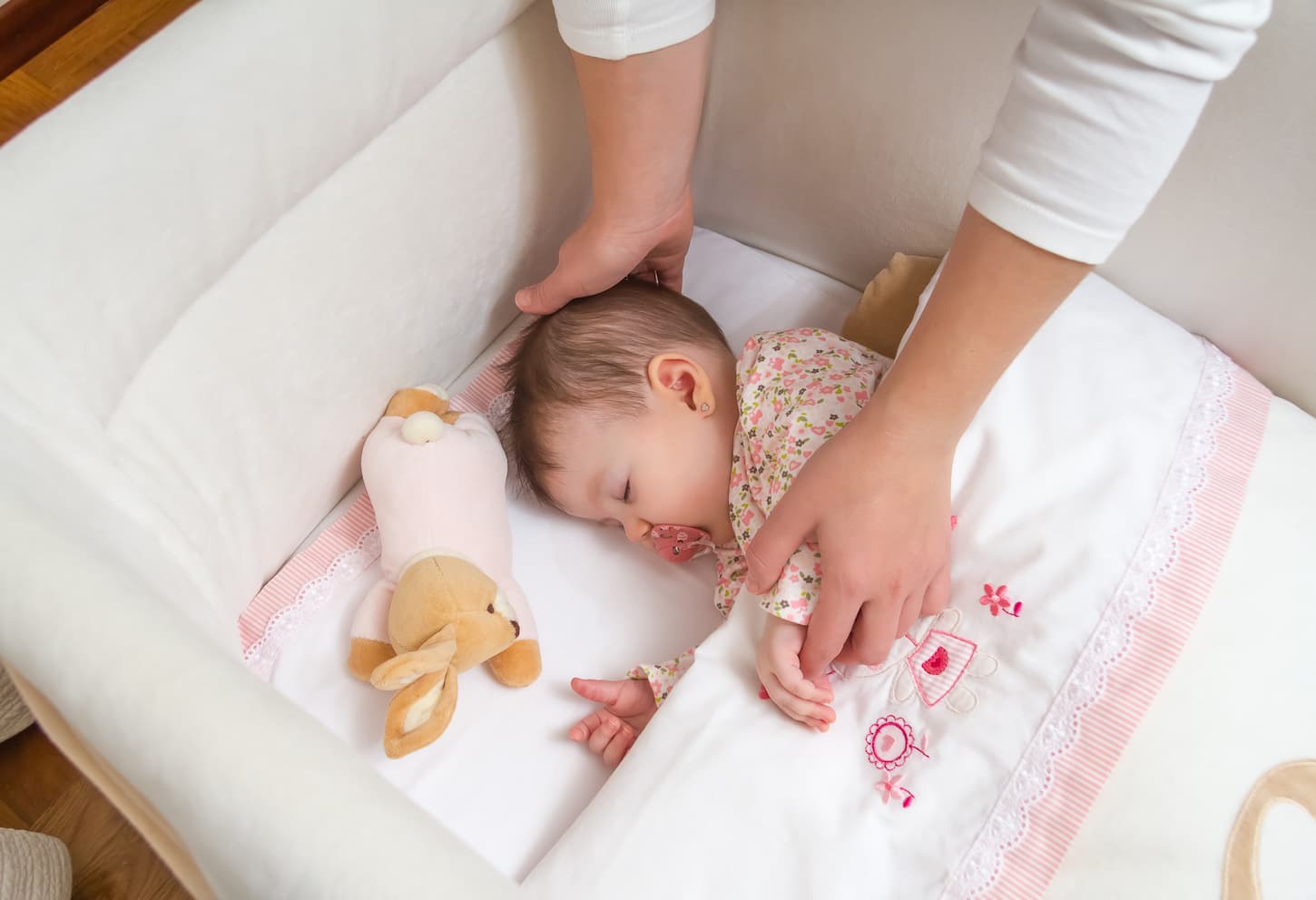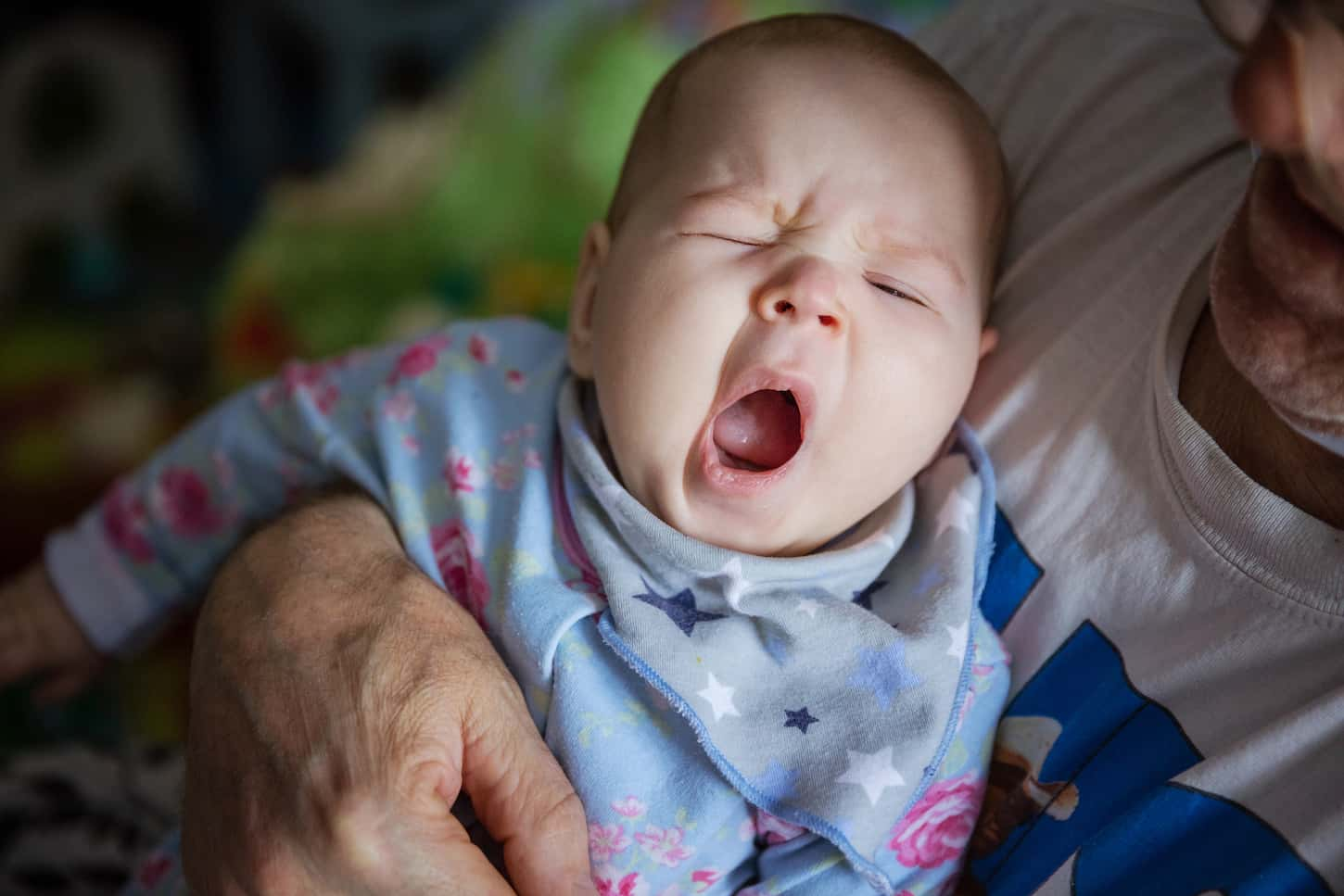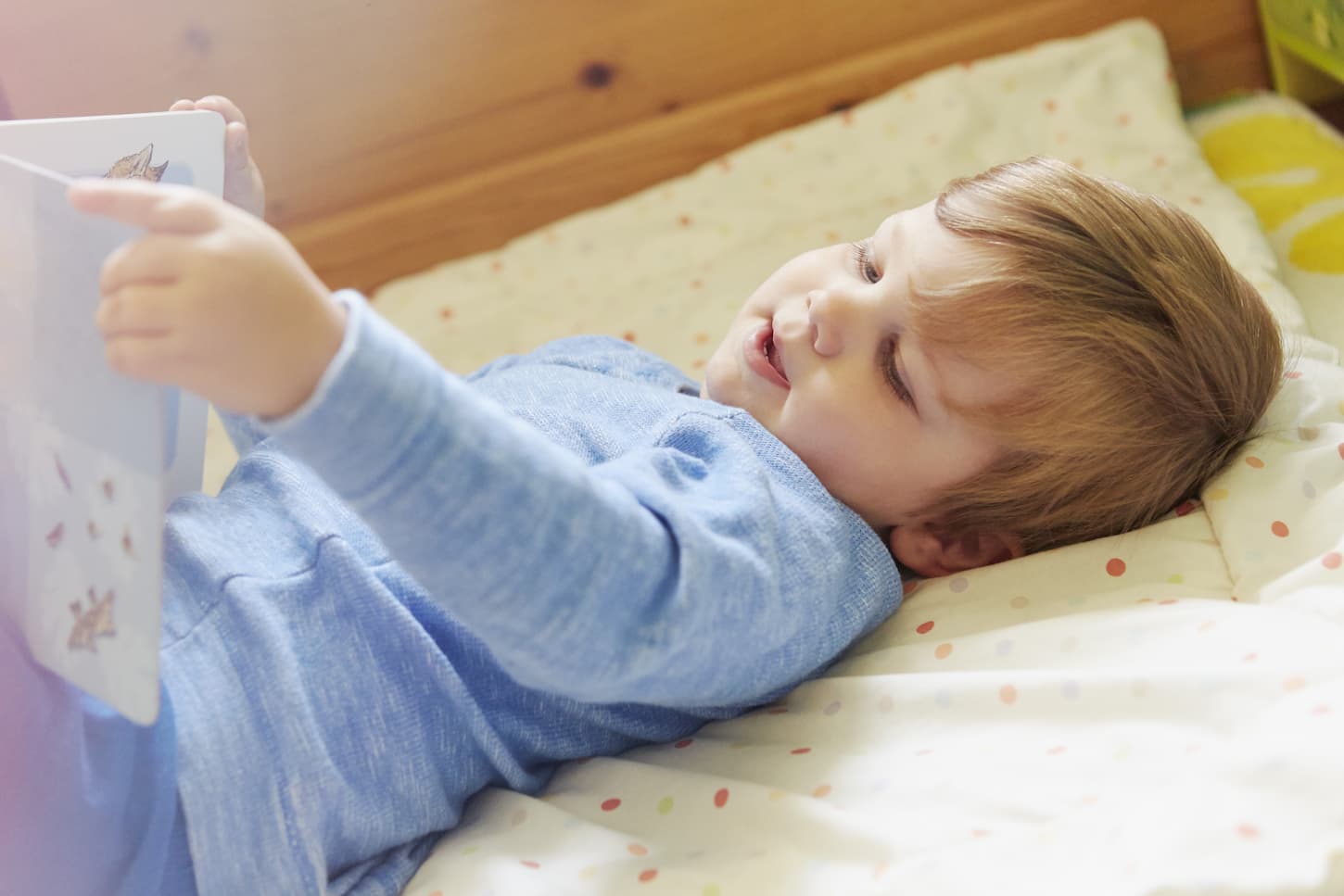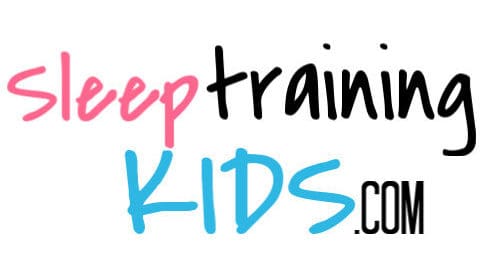Sleep training will help your child to develop lifelong, healthy sleeping habits. And it’s a big milestone in your baby’s life. So as a parent, you’ll be anxious to get it right. And one thing you might be wondering about sleep training is just how long can you expect the results to last.
Each baby is different when it comes to sleep training. Some will fall into a good sleeping routine in just a few days and one round of sleep training. But other babies might need regular, ongoing sleep training.
Sleep is vitally important for your baby’s development. So, if you want to know how to get the most enduring and effective results from sleep training, find out how in our helpful guide.

What’s Sleep Training?
Sleep training is when your baby learns how to fall asleep alone, without your comfort or the aid of a pacifier. They’ll learn how to self-soothe which is good for their independence. And ultimately, this results in more sleep not only for babies but for parents and caregivers too.
Formal sleep training usually starts when babies are 4 to 6 months old. But this will all depend on their development. So, you should always check with your physician before you start sleep training your baby.
Is your baby younger than 4-6 months old? Make sure you read this article we wrote on informal sleep training for the youngest babies!
When it comes to sleep training, each baby is different. Some will take to sleep training immediately while others will need more time and effort. And as for sleep training methods, there are several ones you can use, including the cry it out (CIO) or the Ferber method.
Even though sleep training can seem traumatic for baby and caregiver, studies show that overall, it’s good for your baby’s physical and emotional development. Babies who have good quality sleep are healthier and happier.
The short-term stress of sleep training doesn’t have any long-term results, which is a huge relief.
This is How Long Sleep Training Results Last
The results of sleep training will be different for every baby. The goal of sleep training is for it to have a lifelong effect. However, no matter how well trained your baby is, there’s always the chance that they might go through a sleep regression.
A sleep regression is when suddenly, your baby’s sleep routine becomes disturbed. Regressions usually last between a few days and a few weeks but the time will vary between each baby. Regressions are completely normal, and they don’t necessarily mean that your sleep training has failed.
Babies usually won’t experience sleep regression in the first four months. This is because, during this time, they generally don’t have a sleeping routine. Newborn babies will feed and sleep randomly because they’re not yet accustomed to the difference between night and day.
Not all babies will go through sleep regressions. Just like adults, some babies are better sleepers than others.

What are The Signs of Sleep Regression?
If your baby’s sleeping routine is disrupted in any way, this is a sign of a sleep regression. This includes things such as:
- Waking up a lot during the night
- Resisting naps
- Crankiness and bad mood
- Trouble falling to sleep
- Waking up early
- Napping too much
When babies are going through a sleep regression, it can be distressing for them. And often, they’ll make demands for more feeding and comfort too.
But don’t fret too much about sleep regression signs. We’ll walk you through the basics here – and then we’ve got articles that deep dive into all the most frequently asked questions about both sleep training and regressions on this site.
If your question isn’t answered on our extensive website – just contact us with a question. We’ll get it answered and added to the website as quickly as we can. We’re here to help parents like you (and me) get enough sleep!
What Can Trigger Sleep Regression?
Babies are very sensitive so this means that lots of things can potentially cause them to regress with their sleep training. Most of the time, a regression will happen when your baby reaches important development milestones. But they can also be triggered by a change of environment or an illness.
Below, we’ll take a closer look at the reasons why your baby might be experiencing a sleep regression.
Trigger #1: Excitement
Overstimulation and excitement are major triggers for sleep regression. When your baby reaches major milestones, such as rolling over, standing, or walking, the excitement is almost too much for them to bear.
This means that they might become overstimulated. To the point where they just want to repeat their newfound skill all night long. Sometimes, babies may settle themselves back into a routine once the excitement is over. But some babies might need another session of sleep training to help them recover.
Trigger #2: Illness
If your baby is unwell or teething then this can cause a sleep regression. In some cases, the regression will be over with the ailment. But in others, it may take your baby up to a couple of weeks to get their normal sleeping routine back again.
You should give your baby all the comfort and attention they need during the night if they’re ill. And if your baby doesn’t start to settle back into their sleeping routine after 48 hours of recovering from the illness, you might have to consider starting over with sleep training.
Make sure you read our articles on sleep training while ill and while teething next!
Trigger #3: Change in Environment
Babies are very sensitive to their environment and even the smallest change can be enough to trigger sleep regression. This could be a new nightlight or a change in their cot position for example. Bigger environmental changes such as a house move or bringing home a new sibling can also trigger sleep regression in babies.
Trigger #4: Cluster Feeding
Just before a growth spurt, your baby needs lots of extra nutrition. So this means that they’ll suddenly start demanding more milk and this is known as cluster feeding. Sometimes, they’ll want to be cluster fed at night too and in this case, it can trigger a sleep regression.
However, in order to grow, your baby needs lots of sleep. So once they’ve stocked up on calories with cluster feeding, they’ll usually get back into their sleeping routine unaided.
Trigger #5: Time Change
Whether it’s due to daylight saving or traveling to a different time zone, a time change can also potentially throw your baby’s sleep training out of sync. If you think about it, most adults are even disturbed by a time change.
If you want to avoid your baby going through a sleep regression due to a time change, you can prepare for it in advance. Gradually change your baby’s sleep routine by a few minutes each day in the weeks leading up to the change. This way the effects will be less dramatic, and your baby will be less likely to experience a sleep regression.
And if it is due to daylight savings? I feel you. It’s my two least favorite days of the year. Make sure you read this article to survive the next time change.

Sleep Training Tips for Managing Sleep Regression
Though sleep regression might seem like a step backward, don’t worry, it’s completely normal and natural for babies to experience it. And below, we’ve listed some steps you can take to help your baby deal with sleep regression.
Tip #1: Keep to your Sleep Training Routine
This is vital when it comes to sleep regression. By firmly sticking to your routine, you can potentially reduce the overall duration of the regression
Tip #2: Check the Sleeping Environment
Babies are very sensitive to their environment even the slightest light or temperature change can keep them awake. So make sure there’s nothing in their sleeping environment that could be disturbing them.
Tip #3: Check Nap Times
Make sure that your baby is getting the right amount of daytime naps. Because if your baby is having too many naps, they won’t be very tired during the night. And if they’re not having enough naps, they’ll be overtired which will also affect their sleeping.
Tip #4: Get an Early Night
Make sure that you anticipate a sleepless night by going to bed early. Even though your sleep is disturbed you and your baby still need to get as much of it as you can.
Tip #5: Make Nutrition a focus
Make sure your baby is well fed during the day to reduce the chances of them waking up for feeding during the night.
Tip #6: Watch for Sleep Cues
Learn how to recognize your babies’ sleep cues and work with them. When your baby shows early cues such as lethargy, take them to their bed. Don’t wait for later cues such as yawning because your baby might become overtired.
Tip #7: Give Extra Comfort
During a sleep regression, your baby will be feeling unsettled and disturbed. So it’s a good idea to give them lots of extra comforts, especially at bedtime.
Tip #8: Reach Out For Help
If you feel like you’re suffering from sleep deprivation during a regression, seek help from your family, friends, and other caregivers.
Tip #9: Enjoy the Outdoors
Keep your baby active and stimulated throughout the day and go outside as much as you can. Your baby will respond to natural daylight, and this can help to settle their sleep cycle.
Tip #10: Start Over with Sleep Training
As long as there are no underlying medical reasons why your baby isn’t settling into a sleep routine, you might have to redo sleep training.
Tip #11: Seek Professional Help
If you’re at all concerned about your baby’s health during a sleep regression, don’t hesitate to seek professional medical advice. Your pediatrician should be your first stop.
Sleep Hygiene
Sleep Hygiene is a collection of things you can do to help your baby get a good night’s sleep. This includes keeping to set bedtimes, creating a calming, relaxing atmosphere before bed, and changing into bedclothes for example.
Sometimes, good sleep hygiene practices will be enough to get your baby back into a sleep routine instead of having to completely redo sleep training.
And even if your baby isn’t going through a regression, you should still practice good sleep hygiene. Because with a good bedtime routine, your baby will sleep better, and ultimately this is better for their development and well-being.
If your baby relies on sleep props or physical things to help them get to sleep, make sure you read this article I wrote next. Or if you want that information with a focus on sleep training, read this one.

How Often Do You Need to Redo Sleep Training?
If your baby goes through a sleep regression, sometimes you might have to redo sleep training. It’s common for babies to experience a sleep regression at 4, 8, 12, 18, and 24 months. However, not all babies will go through a sleep regression. And those that do might not need to be re-sleep trained.
Keep in mind that these are approximations for the most common sleep training regression ages. My children hit each of these – and then maybe a few extras. For us, the worst sleep regression was most often at 11 months of age (so technically the 12-month regression).
4 Months
The four-month sleep regression is famous for being the worst. Some babies have been known to wake up every 1 to 2 hours per night during the four-month regression. This is because your baby’s body is going through some major physical changes at this age.
The main one is that they start to develop a cardiac rhythm. This is what gives your baby a sense of day and night. And there are a lot of hormonal changes involved in this process. As well as this, at four months old, your baby will usually be teething and maybe rolling over. And this too can cause sleep disruptions.
This is why most parents start to think about sleep training at this stage. If your baby is still a little bit too young to start sleep training during the four-month regression, you can at least start putting some of the basic foundations of sleep hygiene into place.
8 Months
Sometimes babies will go through an eight-month regression. This one is most commonly caused because of the excitement that comes with reaching major milestones, such as crawling and standing up.
As well as this, at eight months, babies will generally need one less nap per day. And this change in daytime sleeping can also affect nighttime sleep patterns.
12 Months
At twelve months old, your baby might be walking around. And again, the excitement of reaching this milestone is enough to cause a sleep regression. At twelve months old, some babies will also start taking fewer naps during the day.
15 to 18 Months
At this age, your baby is becoming a toddler. They’re finding their independence and testing all kinds of boundaries. And this includes the ones that surround their sleeping routine.
As well as this, babies go through a lot of psychological developments at this age. So, they may suffer a little bit from separation anxiety during the night or around bedtime.

Two Years
At two years old, your child might start fighting off daytime naps. And this can affect their nighttime sleeping. As well as this, it’s the age when children start having nightmares and they may even start sleepwalking.
Conclusion
The results of sleep training will vary greatly between babies. But the main thing to remember is not to get disheartened if you must repeat sleep training. It’s normal for babies to go through sleep regressions. And to make the regression pass by more easily, make sure that you follow good sleep hygiene practices.
And then make sure that you bookmark this website. We’re here for you and other exhausted parents. Feel free to use the search bar (there’s one at both the top and bottom of this page) for what you need help with next.
If you can’t find your question, use our contact page. Email us your question – and we’ll do our best to answer it and get a new article up for other parents with the same question. Or if you’d rather get into more sleep training literature and how-to’s, make sure you go here next.
Resources
Learning about parenting or sleep training techniques is important to learn from various reputable sources. These are the sources used in this article and our research to be more informed as parents.
- Friedrich, A., Claßen, M. & Schlarb, A.A. Sleep better, feel better? Effects of a CBT-I and HT-I sleep training on mental health, quality of life and stress coping in university students: a randomized pilot controlled trial. BMC Psychiatry 18, 268 (2018). https://doi.org/10.1186/s12888-018-1860-2
- Great Ormond Street Hospital. “Sleep Hygiene in Children and Young People.” GOSH Hospital Site, www.gosh.nhs.uk/conditions-and-treatments/procedures-and-treatments/sleep-hygiene-children. Accessed 1 Oct. 2021.
- Hiscock, Harriet et al. “Improving infant sleep and maternal mental health: a cluster randomised trial.” Archives of disease in childhood vol. 92,11 (2007): 952-8. doi:10.1136/adc.2006.099812
- Hiscock, Harriet. “Long-Term Mother and Child Mental Health Effects of a Population-Based Infant Sleep Intervention: Cluster-Randomized, Controlled Trial.” American Academy of Pediatrics, 1 Sept. 2008, pediatrics.aappublications.org/content/122/3/e621?sso_redirect_count=2.
- Pacheco, Danielle. “Sleep Strategies for Kids.” Sleep Foundation, 24 Sept. 2020, www.sleepfoundation.org/children-and-sleep/sleep-strategies-kids.
- Starr, Kimberly. “Sleep Regression and Cluster Feeding: 20 Things To Know.” Sleep Training Kids, 11 Sept. 2021, sleeptrainingkids.com/sleep-regression-and-cluster-feeding-20-things-to-know.
- Starr, Kimberly. “What Is a Sleep Regression?” Sleep Training Kids, 2 July 2021, sleeptrainingkids.com/what-is-a-sleep-regression.
- “When and How to Sleep Train Your Baby.” Cleveland Clinic, 3 May 2021, health.clevelandclinic.org/when-and-how-to-sleep-train-your-baby.
- Zahra Keshavarzi, Hafez Bajoghli, Mohammad Reza Mohamadi, Maryam Salmanian, Roumen Kirov, Markus Gerber, Edith Holsboer-Trachsler & Serge Brand (2014) In a randomized case-control trial with 10-years olds suffering from attention-deficit/hyperactivity disorder (ADHD) sleep and psychological functioning improved during a 12-week sleep-training program, The World Journal of Biological Psychiatry, 15:8, 609-619, DOI: 10.3109/15622975.2014.922698
